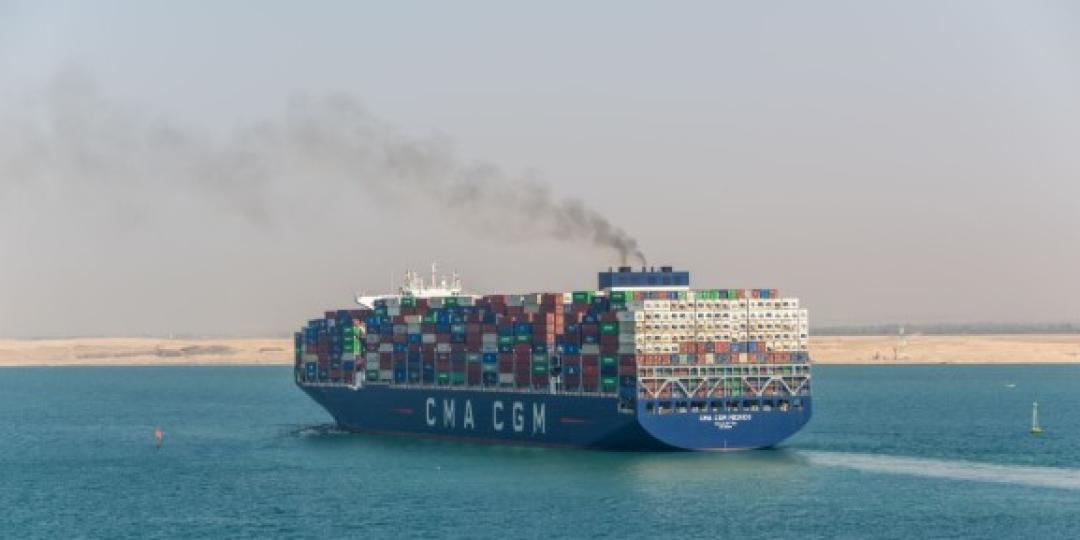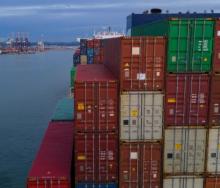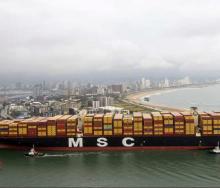French line CMA CGM will break the Suez seal, so to speak, when it sails through the disrupted waterway in the next few days.
According to an update by the Marseille-based carrier, one of 10 vessels will pass through the canal on its Europe Pakistan India Consortium service on 16 June.
The CMA CGM Aquila is expected to call at Jeddah Islamic Port in the Red Sea before heading onto the Arabian Sea and rerouting back through the Suez towards the end of June.
Having consistently risked using the Suez – often under naval guard –while most other lines prefer the safer way around the Cape of Good Hope because of Houthi attacks in the Red Sea, CMA CGM seems to be the most willing line to increase volume through the canal.
This assessment of CMA CGM as the most “risk-willing” has been confirmed by Simon Sundboell, chief executive of maritime traffic tracker eeSea.
The CMA CGM Suez-rotation update follows a recent undertaking by the Houthis to cease commercial vessel attacks off the coast of Yemen, provided no routes service any Israeli port.
Sundboell said the most likely result will be other lines following suit but on a small-scale, piecemeal or ad hoc basis.
He added that a rapid return of rotations through the waterway is unlikely although rebates offered by the Suez Canal Authority will act as an impetus for more lines to return to the shorter Europe-Asia route.
In addition to the news about the Aquila, CMA CGM said its Medex service (Mediterranean-Middle East-Indian subcontinent) will also return to the Suez.
Previously, the line’s BEX2/Phoenician Express – operated with Cosco, OOCL and Evergreen – was the only service through the Suez since April last year.
Sundboell indicated that CMA CGM’s resilient approach relative to the Suez will not go unnoticed.
However, Hapag-Lloyd CEO Rolf Habben Jansen said the Hamburg line will remain cautious before returning to the canal.
He said CMA CGM’s Suez sailings in recent months were facilitated by French naval support and that the line, on occasion, still rerouted vessels around the Cape – a situation Hapag-Lloyd wants to avoid.
The German carrier does not want to plan for Suez services and fall back on Cape of Good Hope deviations if violence in the Red Sea flares up again.
Along with Maersk, its vessel-sharing partner in the February-launched Gemini Cooperation, Hapag-Lloyd has been consistently identified by sea intelligence platforms, similar to eeSea, as a top carrier for schedule reliability so far in 2025.
Habben Jansen warned that, should Suez capability return too fast, serious congestion will ensue, especially in Northern Europe ports as lines start to speed up east-west rotations.













